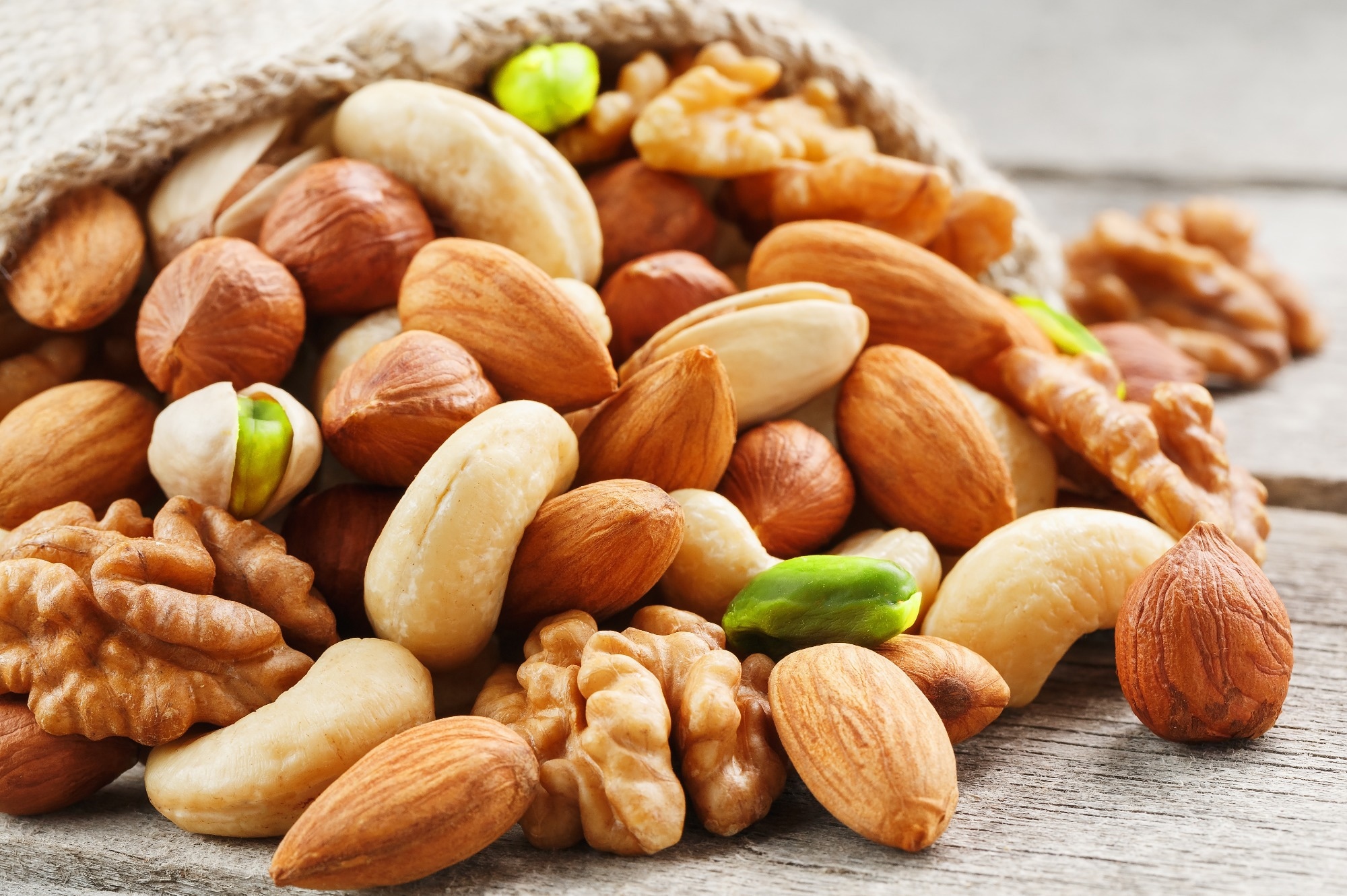Being overweight and obese has been associated with the development of atherosclerotic cardiovascular disease (CVD). However, several studies have shown that the consumption of certain types of nuts reduces the risks of CVDs.
Recently, a Nutrition, Metabolism, and Cardiovascular Diseases study investigated the effect of daily consumption of mixed nuts on low-density lipoprotein cholesterol (LDL-C), lipoprotein(a) [Lp(a)], and inflammatory markers in individuals who are overweight or obese.
 Study: Effects of Mixed Nut Consumption on LDL Cholesterol, Lipoprotein(a), and Other Cardiometabolic Risk Factors in Overweight and Obese Adults. Image Credit: Aleksandr Grechanyuk / Shutterstock.com
Study: Effects of Mixed Nut Consumption on LDL Cholesterol, Lipoprotein(a), and Other Cardiometabolic Risk Factors in Overweight and Obese Adults. Image Credit: Aleksandr Grechanyuk / Shutterstock.com
An overview of atherosclerosis
Atherosclerosis is a type of CVD in which fatty plaques form in the arterial walls. Cholesterol deposition occurs in the damaged endothelium through circulating cholesterol-rich apolipoprotein B (ApoB)-containing lipoprotein particles, such as very LDL-C (VLDL-C), LDL-C, or Lp(a).
After deposition, cholesterol undergoes oxidation, which causes the endothelium to initiate an inflammatory response through monocyte infiltration, foam cell formation, plaque development, and arterial blocking that reduces blood flow to major organs. Previous studies have indicated that elevated LDL-C and Lp(a) levels increase the risk of CVD, including the progression of atherosclerosis, whereas reduced LDL-C leads to a decrease in Lp(a) levels.
The health benefits of nuts
Typically, unhealthy dietary habits cause an increase in LDL-C; therefore, effective dietary modifications could prevent CVDs. Nut consumption, for example, has been shown to reduce certain risk factors associated with CVDs.
Nuts contain unsaturated fats, antioxidants, phytochemicals, and soluble fibers that benefit blood lipids and lipoproteins. In fact, almonds, walnuts, macadamia nuts, pistachios, and Brazil nuts have been shown to significantly reduce total cholesterol (TC) and LDL-C levels and increase HDL-C. Likewise, hyperlipidemic patients subjected to 73 g/day of almonds have been shown to exhibit reduced Lp(a) levels.
About the study
The current randomized controlled trial (RCT) evaluated the effect of mixed nut consumption on lipid profiles, Lp(a), and inflammation. Here, the researchers hypothesized that diets supplemented with 42.5 g/day of mixed nuts would reduce LDL-C, Lp(a), and inflammation marker levels in obese and overweight individuals.
Thanks for read

